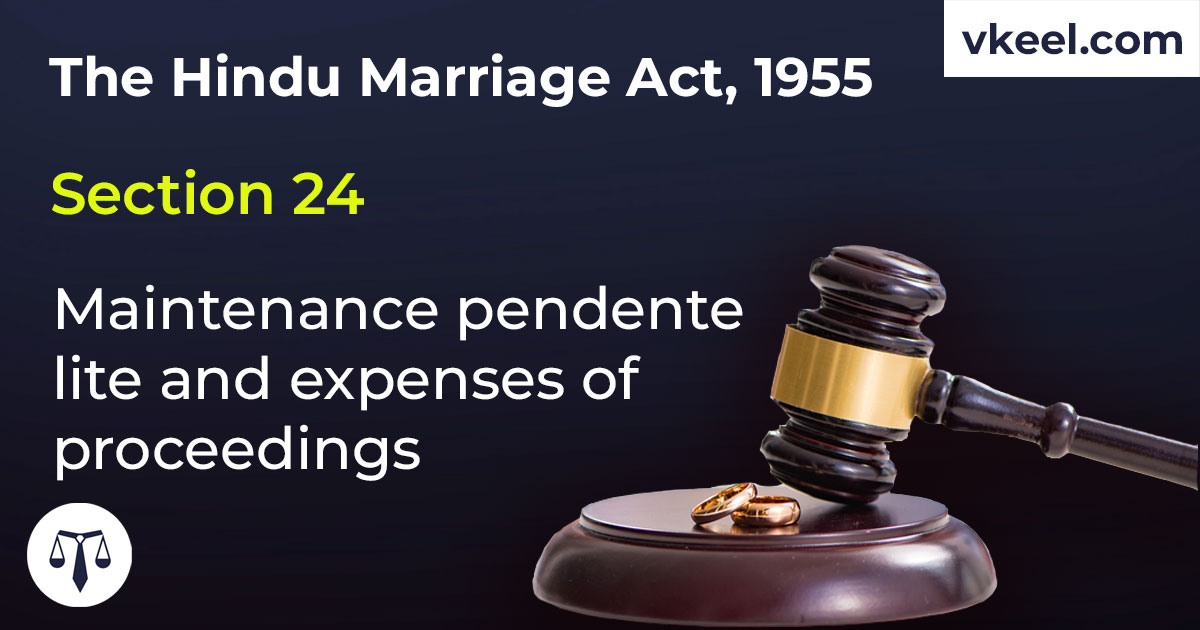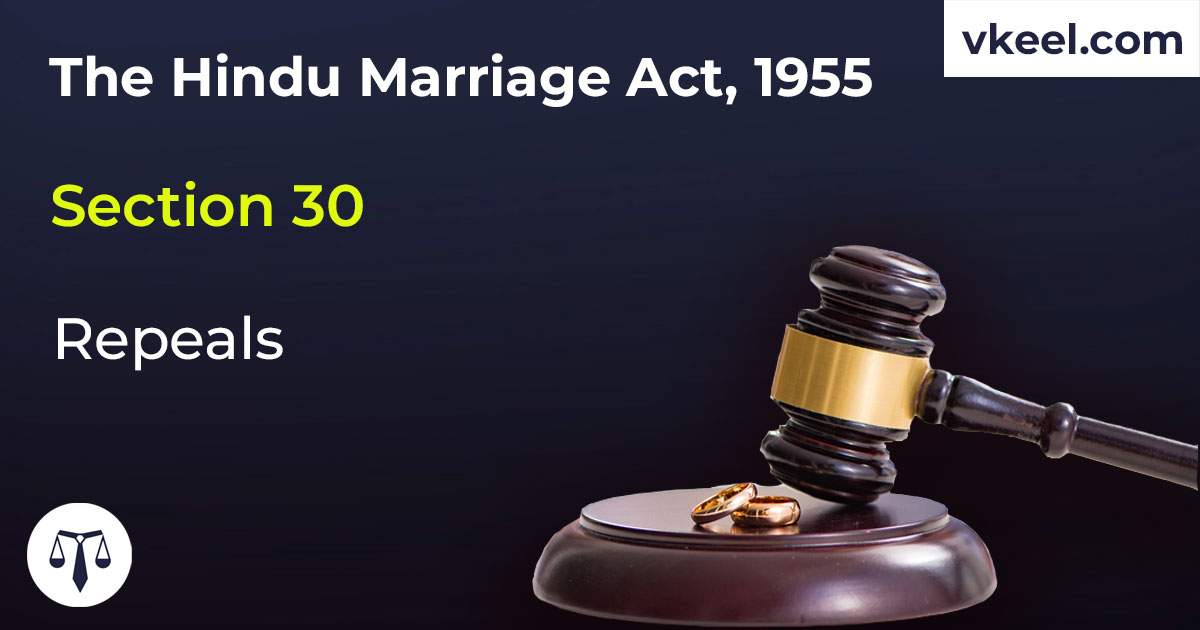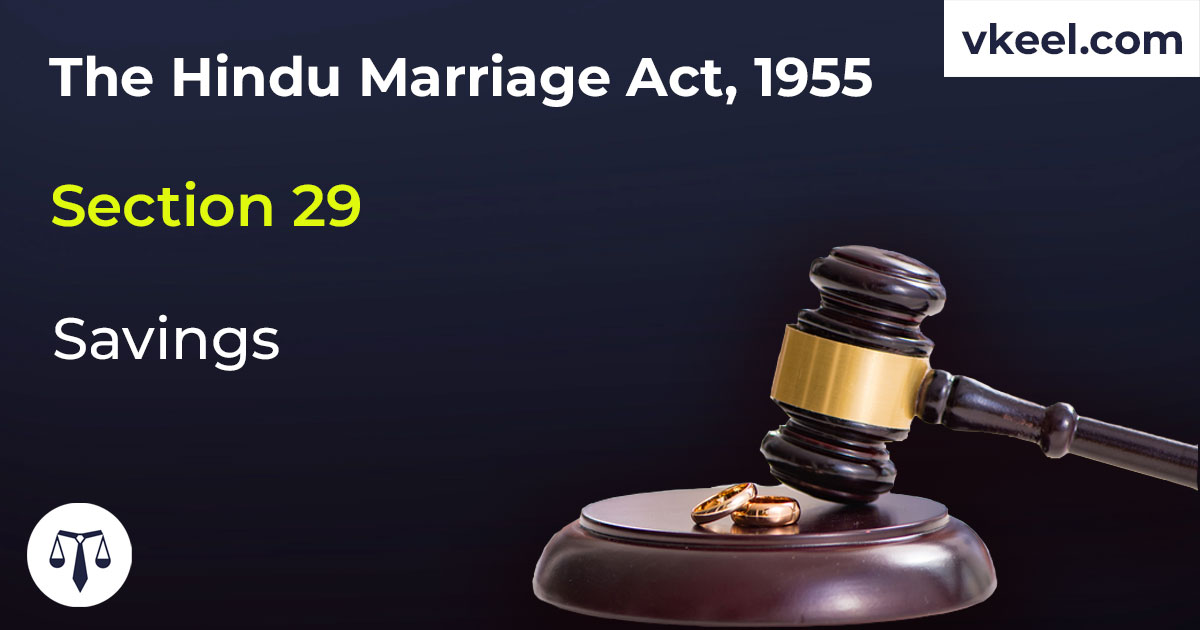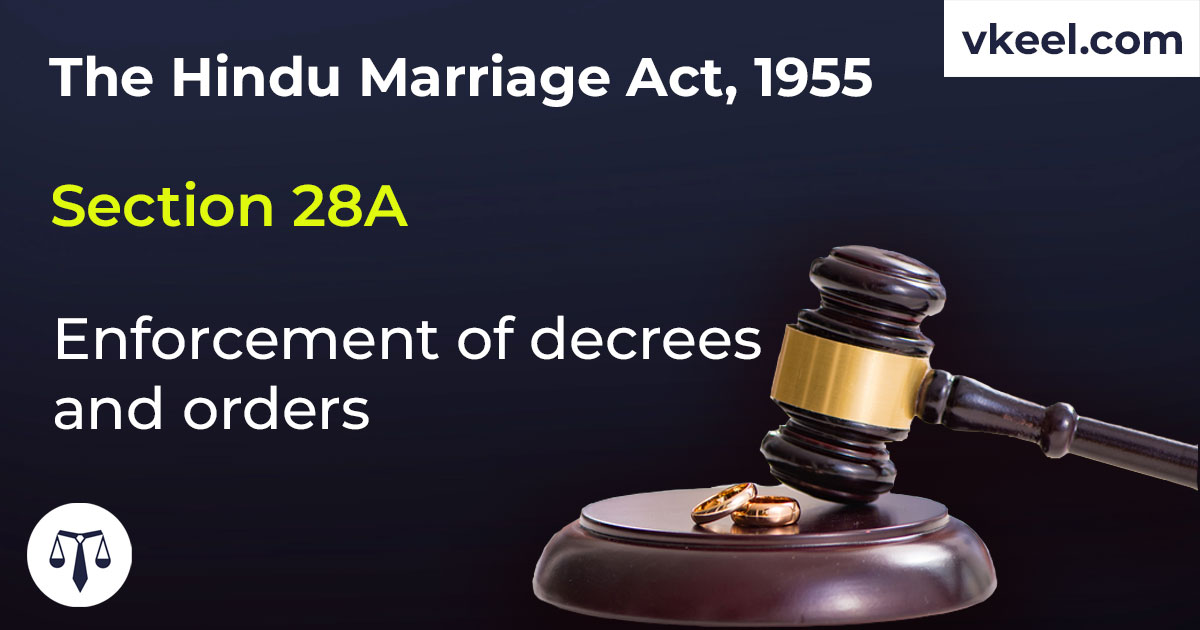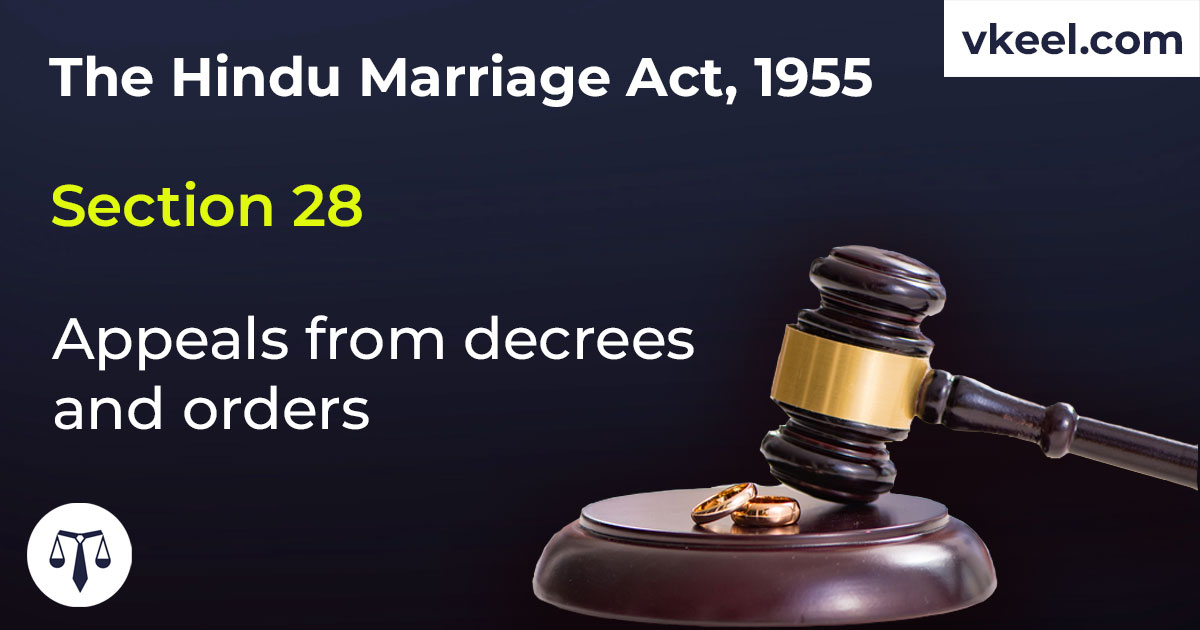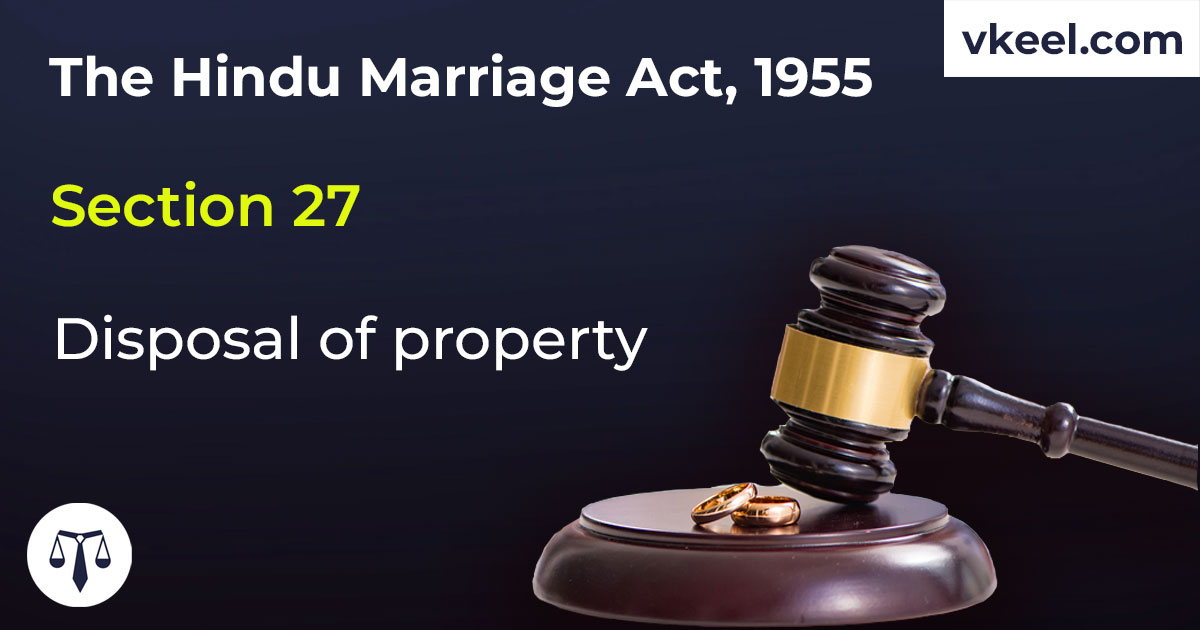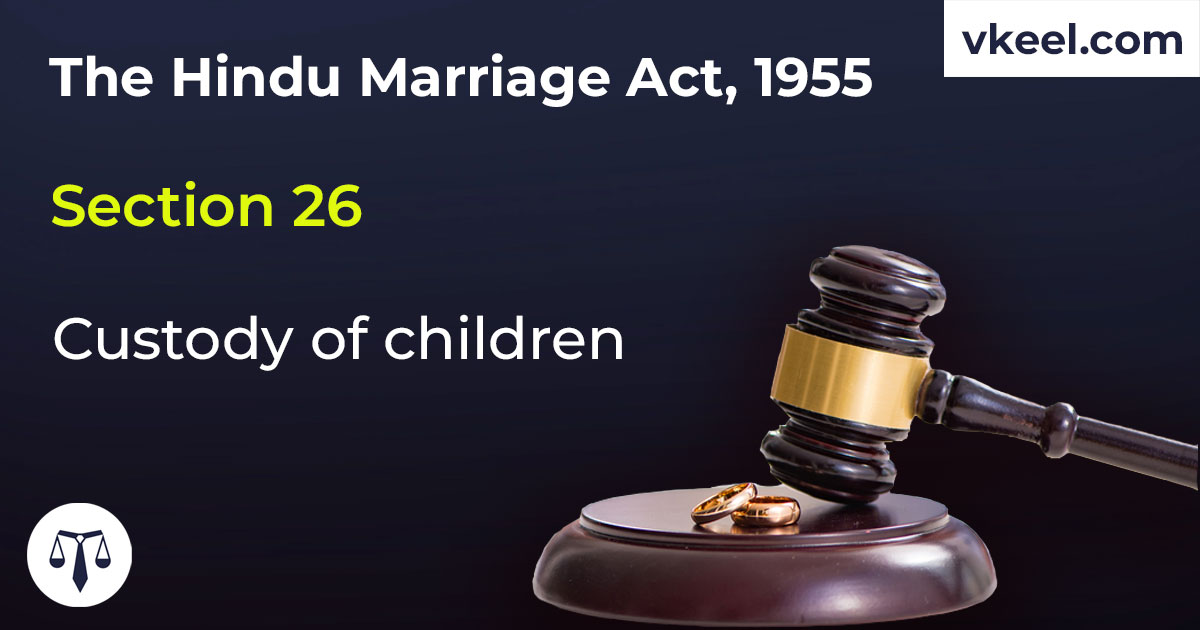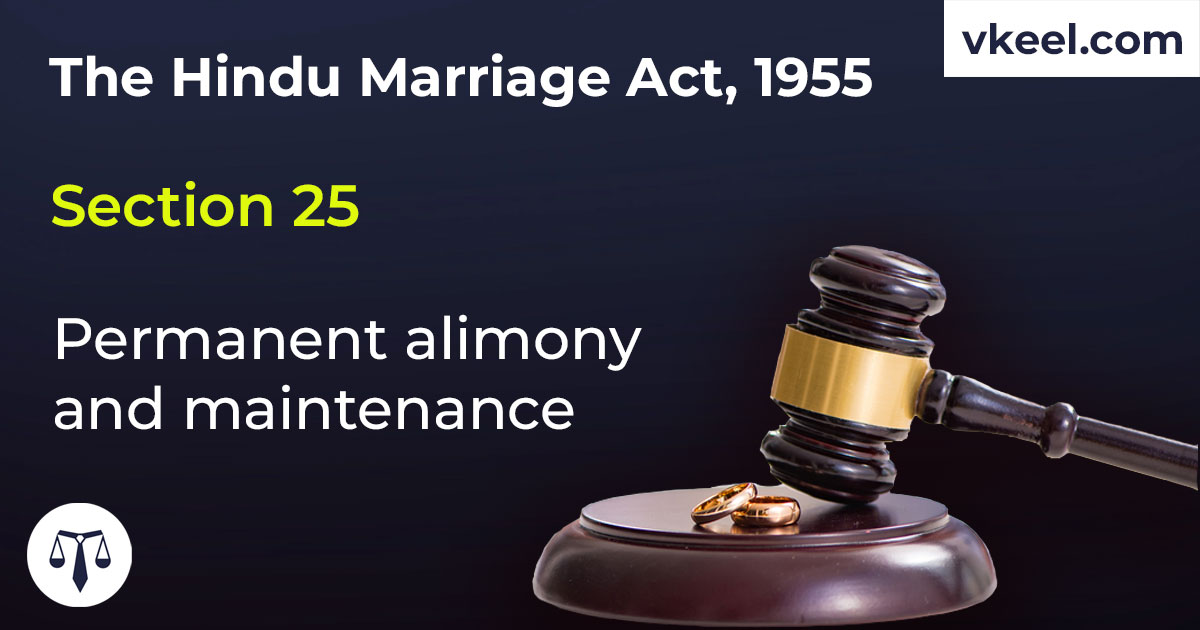Section 24 Hindu Marriage Act 1955 -Maintenance pendente lite and expenses of proceedings
By Vkeel Team
Table of Contents
Description
“Section 24 Hindu Marriage Act 1955”
Where in any proceeding under this Act it appears to the court that either the wife or the husband, as the case may be, has no independent income sufficient for her or his support and the necessary expenses of the proceeding, it may, on the application of the wife or the husband, order the respondent to pay to the petitioner the expenses of the proceeding, and monthly during the proceeding such sum as, having regard to the petitioners own income and the income of the respondent, it may seem to the court to be reasonable.
1[Provided that the application for the payment of the expenses of the proceeding and such monthly sum during the proceeding, shall, as far as possible, be disposed of within sixty days from the date of service of notice on the wife or the husband, as the case may be.]
Role of the Court in Determining Maintenance Pendente Lite Under Section 24 Hindu Marriage Act 1955
The court plays a crucial role in determining maintenance pendente lite under Section 24 Hindu Marriage Act 1955. This section provides for the payment of maintenance to the wife or husband, or both, during the pendency of a suit for dissolution of marriage. The court is empowered to make an order for the payment of maintenance to the wife or husband, or both, as it deems fit.
The court is required to consider several factors when determining the amount of maintenance to be paid. These include the financial resources of the parties, the reasonable wants of the parties, the standard of living enjoyed by the parties during the marriage, and the conduct of the parties. The court must also take into account the age, health, and financial needs of the parties.
The court is also required to consider the income of the parties, including any income from investments, and the income of any other person who is liable to maintain the parties. The court may also consider the value of the property of the parties, and any other property that may be available for the maintenance of the parties.
The court is also required to consider the needs of any children of the marriage, and the court may make an order for the payment of maintenance for the children. The court may also make an order for the payment of maintenance for any other person who is dependent on the parties.
The court is also required to consider the ability of the parties to pay the maintenance. The court may make an order for the payment of maintenance in a lump sum or in installments. The court may also make an order for the payment of maintenance for a specified period of time.
The court is also required to consider any other relevant circumstances when determining the amount of maintenance to be paid. The court may also make an order for the payment of maintenance for a specified period of time, or until the parties reach an agreement regarding the maintenance.
In conclusion, the court plays a crucial role in determining maintenance pendente lite under Section 24 Hindu Marriage Act 1955. The court is required to consider several factors when determining the amount of maintenance to be paid, including the financial resources of the parties, the reasonable wants of the parties, the standard of living enjoyed by the parties during the marriage, and the conduct of the parties. The court is also required to consider the income of the parties, the value of the property of the parties, and any other relevant circumstances when determining the amount of maintenance to be paid.
Rights of Spouses to Maintenance Pendente Lite Under Section 24 Hindu Marriage Act 1955
Under Section 24 Hindu Marriage Act 1955, spouses have the right to maintenance pendente lite, which is a Latin term meaning “pending the litigation”. This is a form of temporary maintenance that is granted to a spouse during the pendency of a divorce or other matrimonial proceedings. This type of maintenance is intended to provide financial support to the spouse who is not able to support themselves during the proceedings.
The purpose of maintenance pendente lite is to ensure that the spouse who is not able to support themselves is able to maintain their standard of living during the proceedings. This type of maintenance is usually granted to the spouse who is not able to support themselves financially, such as a spouse who is unemployed or has a low income. The amount of maintenance pendente lite is determined by the court based on the financial needs of the spouse and the financial resources of the other spouse.
Under Section 24 Hindu Marriage Act 1955, the court has the power to grant maintenance pendente lite to either spouse. The court will consider a number of factors when determining the amount of maintenance pendente lite, such as the financial needs of the spouse, the financial resources of the other spouse, and the standard of living enjoyed by the spouses during the marriage. The court may also consider any other relevant factors that it deems necessary.
In addition to granting maintenance pendente lite, the court may also order the other spouse to pay for the legal costs of the proceedings. This is intended to ensure that both spouses are able to access legal representation and to ensure that the proceedings are conducted fairly.
In conclusion, Section 24 Hindu Marriage Act 1955 grants spouses the right to maintenance pendente lite during the pendency of a divorce or other matrimonial proceedings. This type of maintenance is intended to provide financial support to the spouse who is not able to support themselves during the proceedings. The court has the power to grant maintenance pendente lite to either spouse and will consider a number of factors when determining the amount of maintenance pendente lite. The court may also order the other spouse to pay for the legal costs of the proceedings.
1. Ins. by Act 49 of 2001, s. 8 (w.e.f. 24-9-2001).
Description Source: indiacode
Disclaimer:
The information provided in the article is for general informational purposes only, and is not intended to constitute legal advice or to be relied upon as a substitute for legal advice. Furthermore, any information contained in the article is not guaranteed to be current, complete or accurate. If you require legal advice or representation, you should contact an attorney or law firm directly. We are not responsible for any damages resulting from any reliance on the content of this website.

